Tax included and shipping calculated at checkout
- Posted on
Pain Relief With the Most Important Mineral

If you have a pain on the bottom of your foot, rather than reach for an analgesic tablet, the first thing you should do is take your shoe off to check if there is a stone in there. And when it comes to any other pain, do you know the cause of it? Or are you just popping pills to numb the pain?
We know that when we feel pain it is a sign that the body is trying to heal from some kind of assault, some kind of injury. But what if that healing process doesn’t happen the way it should? What if the pain keeps lingering on?
Pain can manifest in many parts of the body, including:
Gut – Digestive System
Bladder
Uterus
Back
Joints
Lungs
Head
Heart
Flesh wounds
Tennis elbow or other repetitive stress injury
Pain tells us that we need to focus on a part of the body that needs repair. If we didn’t have pain to alert us to injury, we could unwittingly do a lot of damage – like not pulling your hand away from a hot stove or flame.
If you accidentally cut or burn yourself you need to clean, treat and protect the wound, so the body can carry on to heal and seal the damaged tissue. It hurts for a while which causes the body to increase electrical energy supply to the area for healing. This makes the area feel hot. It is called inflammation, that is, a kind of ‘internal’ flame.
The increase in energy then drives the clean-up operation, removing dead cells, and building new tissue. As well as an increase in temperature, the area also gets swollen with white blood cells (lymphocytes and phagocytes) deployed to fight off any pathogens and remove dead matter.
When the construction job is finished, the pain goes away - usually. When the body doesn’t have enough resources to heal and recover fully, the pain takes longer to resolve. Healing slows down.
What can make things worse is the prolonged use of opioid medication, which is not only addictive, but can cause debilitating side effects like nausea, reflux, constipation, irritable bowel syndrome, itchiness, or liver damage. Addiction means that the body eventually gets so used to the medications over time that they have less and less effect to relieve pain, but the debilitating side effects and damage to liver continue to escalate. This means that what the body really needs to heal the wound fully is still not being supplied, but now you have an addiction problem and a revolving door of ongoing pain to boot.
We are going to look at various natural alternatives to manage pain and speed up healing, including the most important mineral for pain relief – magnesium.
Types of Pain
Somatic pain comes from the nerves that supply the muscles, bones, and other soft tissues. It is usually a sharper sensation and easier to locate than visceral pain. Somatic pain usually fades once the injury heals, unless it becomes chronic pain, which is an indicator that the body has not fully completed the healing of the injury, because not enough resources were available.
Some chronic somatic pain conditions include:

- Fibromyalgia
- Tension headaches
- Pelvic pain caused by pelvic joint instability
- Chronic back pain that is not caused by nerve damage
- Arthritis
Do you see how these conditions are related to the muscles, connective tissue and joints?
Visceral pain however is a deep, but dull and vague internal pain coming from the organs or the blood vessels. It is harder to pinpoint a specific location, but instead feels like a more spread out, drawing or pulling sensation.
Some common types of visceral pain include:
- Irritable bowel syndrome
- Vulvodynia
- Bladder pain (such as cystitis)
- Endometriosis pain
- Prostate pain
The Mind-Body-Body-Mind Connection to Analgesia
Asian cultures have long used acupuncture to alleviate pain, which is now being employed more also in western cultures. Very fine needles are placed strategically at certain points in the skin surface to cause a connection with flow of electrons in an electrical energy circuit.
How acupuncture works as an analgesic is not fully understood, but it is believed that it can cause the brain to release endorphins, which are natural pain blockers. The energy circuit may also deliver more resources to speed up healing.
But what can you do for yourself in your own home every day to relieve and manage pain?
When you are told that the pain is all ‘in your head’, in a sense, that’s right! The mind has more power than you think. When a nociceptor, a sensory neuron pain receptor, detects an injury, it sends signals via the spinal cord to the brain. The brain then has to make a judgement about the severity of the injury, which then determines the level of pain directed to the body part, so that we are alerted and can do something about it.
Our perception of pain is directly related to the brain’s interpretation of what is happening. This is how yogis in meditation, or people like Wim Hof, can mitigate against a painful activity. They can minimise the severity of pain through mind control techniques that convince the brain that the severity of the painful activity is not so bad. This allows them to detach and not ‘feel’ the pain (as much anyway).

Everyone can learn to use these mindfulness meditation techniques to reduce the level of pain, and it’s probably something we should be teaching our children. Once you learn, you have this tool forever – and it’s free!
Another helpful technique to mitigate pain, and which goes hand-in-hand with meditation, is deep breathing exercise. It stimulates the vagus nerve and endocannabinoid system, lifting oxygen levels and alkalising the blood. Many women use these techniques to manage pain during childbirth. According to an article in Psychology Today, “Diaphragmatic breathing is part of a feedback loop that improves vagal tone by stimulating the relaxation response of the parasympathetic nervous system.”
Speaking of the endocannabinoid system, many people are now using natural CBD oil (cannabidiol) as a pain relief therapy, as it helps to relieve tension in the vagus nerve from the jaw through the chest and heart, and down into the abdomen and groin area. This is the nerve that tightens up directly in response to stress.
There are also many essential oils that have been traditionally used for pain management and to relax from stress of the vagus nerve, including arnica, clove, helichrysum, peppermint, lavender, frankinsense, chamomile and juniper-berry.
Another method of pain relief that has gained in popularity in recent years are TENS type machines, which send an electrical pulse through the muscle to promote better blood circulation and to help the muscle fibres relax. The electrical stimulus also helps tissue cells regenerate faster. Healing is all about electrical energy! When metabolism has dropped, the body can get a 'kick-start' to healing this way.
This brings us to the benefits of infrared light. When the body experiences pain because something needs repair, those tissue cells will need about double the amount of voltage to get that repair job done. According to Dr Jerry Tennant, author of Healing is Voltage,
“When you have the voltage, all the things it takes to make a cell, and deal with the toxins that damage cells as fast as you make them, your body will begin to heal.” – Dr. Jerry Tennant
Human cells are designed to run at about -20 millivolts (or pH of 7.35).
mV vs pH equivalents calculator
The body has the ability to heal itself of many ailments when your cells reach -50 millivolts (7.88pH). Infrared light therapy can help get the voltage higher for healing. You can get infrared simply from sunlight, and also via infrared saunas, hand-held devices and mats that you can lay on. When healing is done, cells return to 7.35pH.
Note that healing is slower when pH is too acidic. Acidosis can cause inflammation and painful conditions. By detoxing with cleansing dietary techniques, and supplying extra antioxidant supports, you can restore pH balance. This will help to relieve the pressure of inflammation, increase energy supply, and speed up healing.
Remember also, that magnesium is the essential mineral used by mitochondria to produce ATP (adenosine triphosphate), our electrical energy batteries. That means that, as magnesium drops, so does the metabolism. All these pain relief techniques work much better when enough magnesium is available.
Inflammation
In addition to regulating heart functions, the vagus nerve plays a major role in decreasing inflammation and stimulating secretion of calming neurotransmitters made in the gut.
The vagus nerve connects and works in conjunction with the trigeminal nerve, which is the largest cranial nerve responsible for the face, scalp, teeth, mouth, and nose sensations. It controls your chewing muscles, eye muscles and facial expressions.
When you experience stress (such as in a bad dream), you may unconsciously clench your jaw and grind your teeth. This is a sign the ‘fight or flight’ sympathetic nervous system is fired up.
The trigeminal nerve can cause tension headaches – particularly when the vagus nerve is experiencing stress. Consistent stress in this area may be a sign of magnesium deficiency, as magnesium is required to relax the vagus and trigeminal nerve network.
Without the relaxation and antioxidant support of magnesium, the stress and tension increases acidity, weakens the immune system and microbiome balance, which promotes inflammation and headache. These symptoms are common during influenza or coronavirus infections because they increase the stress and toxic load, thereby depleting more magnesium.
Why Does Stress Make the Pain Worse?
When a person is under stress, the brain ramps up pain intensity and everything becomes more sensitive. Little bumps become big bumps.
Stress leads to the activation of the hypothalamo-pituitary adrenal (HPA) axis. This stimulation sends a flood of adrenaline and cortisol through the system, which trigger the N-methyl-d-aspartate receptors (NMDA) to unleash glutamate and dopamine, which push more calcium into cells for muscle and vascular tension. It also causes quick firing of neurons. This gets everything ready for action and ‘flight or flight’. As calcium goes in for action, magnesium recedes.
These adrenal hormones cause a spike in metabolism, which results in the production of more Reactive Oxygen Species (ROS). These are free radicals that can cause cell damage due to their acidity (unless they are neutralised by antioxidants such as magnesium, vitamin C and glutathione). As excitement, action and stress increases, we spend more magnesium in the process of metabolism. As magnesium drops we have less defence against the free radicals.
If you have great kidneys (as in younger people), they recycle a lot of the magnesium and send it back around the loop. But if not (as in older people), you can get excessive magnesium wastage in the urine called hypermagnesuria.
When magnesium is excessively lost via the kidneys, not enough magnesium is available to go back into tissue cells to control the calcium and restore relaxation for recovery. Some researchers believe the kidneys start to decline in function when too much free calcium settles in the cells of the kidney tubules, causing them to somewhat stiffen. But this can largely be avoided if you have plenty of magnesium available, and you cut out sugars, chemicals and artificial additives in your diet.
If you don’t get enough dietary magnesium or if stress levels get too high, then you can easily get magnesium deficiency, which can trigger a whole raft of health problems related to metabolism, pH balance, electrical conductance, organ function, and the performance of the central nervous system.
Oh, and did I mention pain? Yes, pain itself is a big stress and triggers excessive loss of magnesium; and low magnesium is associated with increased pain sensitivity. Restoring normal magnesium level helps to move away from sensitivity and back to normalcy.
Magnesium Has a Neuroprotective Effect
Excessive neurotransmitter release of glutamate and dopamine fuels excitation and hyperactivity. And, when too much dopamine becomes oxidised it generates hydroxydopamine - a neurotoxin.
Magnesium can come to the rescue. As well as controlling the stimulation of calcium in the firing neurons, it also relaxes muscles and blood vessels. Magnesium is used by the body to make Gamma Amino Butyric Acid (GABA), which helps to relax and calm down the nervous system. Magnesium also opposes NMDA receptors to inhibit excessive neurotransmitter release.
In this way magnesium dampens down the excitation and stress response so the body can recover its resting phase, the parasympathetic mode. If you haven’t got enough magnesium to restore balance, your brain may get hooked in the excitatory phase way beyond what is needed. This causes production of excessive free radicals, which can inflame and destroy neurons. This is how excessive or chronic stress can burn us out and even cause mental health issues.
Migraine Headaches
A migraine headache progresses as a result of a flood of stress neurotransmitters in the brain. In some cases, it is preceded by an aura, or electrical flashes around the visual periphery. Migraines can be accompanied by light sensitivity, nausea and vomiting as they get worse. They can even last for days.
Studies have shown that brain magnesium levels were significantly reduced in patients with all types of migraine, as well as in cluster headache patients. When migraineurs with low erythrocyte (red blood cell) magnesium levels, and decreased ionized lymphoycyte magnesium levels, were given mineral water containing magnesium over a two-week period, both erythrocyte and lymphocyte magnesium levels rose (Thomas et al., 2000).
Another study reported that, “Intravenous magnesium has an affect that is similar to or better than caffeine for treating acute migraines. After magnesium medication, the incidence of migraine attacks decreased significantly.” (Shin 2020)
Neuropathic Pain
There has been extensive research over many years showing magnesium’s powerful effects to relieve neuropathic pain. Regarding back pain, “When magnesium therapy was administered to patients presenting with low back pain with a neuropathic component, pain intensity reduced, and the range of motion of the lumbar spine improved.” So in addition to pain relief, magnesium also improved flexibility.
“Neuropathic pain and functional disability following spinal cord injury can improve with magnesium treatment… Neuropathic pain includes diabetic neuropathy, postherpetic neuralgia (PHN), cancer-related pain, trigeminal neuralgia, post-amputation pain, polyneuropathy, radiculopathy, and post-stroke pain.”
Fibromyalgia
Fibromyalgia is a common chronic pain syndrome without a specific aetiology. Researchers are still baffled by how it comes about, but they observe its common symptoms of fatigue, depression and sleep disturbances. It is postulated that fibromyalgia is associated with increased levels of Substance P, which intensifies the pain of fibromyalgia. Magnesium deficiency can increase levels of Substance P, and replenishment with magnesium can reduce it and relieve symptoms.
Period Pain
Dysmenorrhea, or period pain, can be alleviated by magnesium supplementation, due it its anti-inflammatory and relaxation effects.

Surgery and Post-Operative Pain
Dependence has grown on strong opioids to control acute and chronic pain over the past decade, influenced by a rising epidemic of prescription opioid abuse, misuse, and over-dose related deaths. Surgery exposure to opioids is blamed as the most common way people are introduced and subsequently become dependent and addicted to them.
However, there are better ways to manage pain during and after surgery, which don’t have such debilitating consequences. Some anaesthetists are now using a combination of magnesium IV infusion together with conventional anaesthetic so as to reduce the amount of anaesthetic used.
They have found that, “The systemic administration of magnesium during general anesthesia significantly attenuates post-operative pain intensity without increasing the risk of adverse events.” Magnesium infusion also minimises the risk of allergic side effects and speeds up recovery time.
SUMMARY: Analgesic (Pain Relief) Effects of Magnesium
The primary mechanisms through which magnesium produces its analgesic effects are:
- As an antagonist and dampener of the N-methyl-D-aspartate (NMDA) receptor ion channel in the spinal cord. The NMDA receptor plays a key role in central (nervous system) sensitization. Therefore, pain is felt more intensively, and sensitivity is increased when the NMDA receptor is activated.
- Relaxation of pressure via control of calcium: Magnesium blocks calcium channels and modulates potassium channels. It maintains membrane integrity, blood fluidity, arterial flexibility, and electrolyte balance.
- Anti-inflammatory effects: Low magnesium and increased calcium has been shown to trigger an inflammatory response due to phagocyte priming. Neutrophils and macrophages from magnesium-deficient rats were more easily triggered and generated more ROS, even without any stimulation. (Libako,2010) Increased magnesium, on the other hand, had an anti-inflammatory effect.
- Magnesium activates the nitric oxide (NO) pathway to dilate and relax the vascular system.
For maintenance of normal magnesium levels researchers suggest a daily ongoing magnesium supplementation of approx. 400mg. However, some patients recovering from injury may require higher doses of around 1000mg a day.

Transdermal magnesium can deliver more magnesium to cells than oral tablets and powders because it bypasses the digestive system, which is often struggling to digest supplements and foods due to the stress of injury and illness. With magnesium via skin, people can soak in it, or massage in the amount and concentration they need to feel a faster pain or cramp relief, and relaxation of muscles and the vascular system. It is very calming and helps to promote sound sleep too.
So remember, MAGNESIUM TREATS BOTH SYMPTOMS AND CAUSES of pain – without the negative side effects.
By Sandy Sanderson © 2021
About The Author

Sandy Sanderson
Read Also

- Posted on

- Posted on

- Posted on

- Posted on

- Posted on
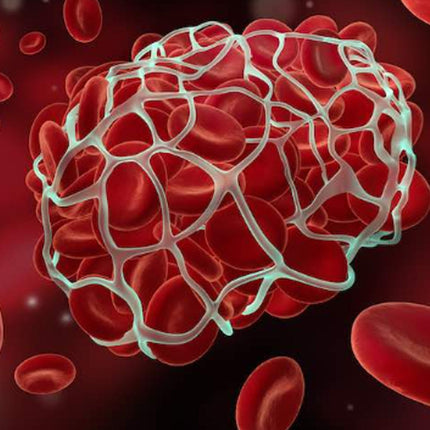
- Posted on
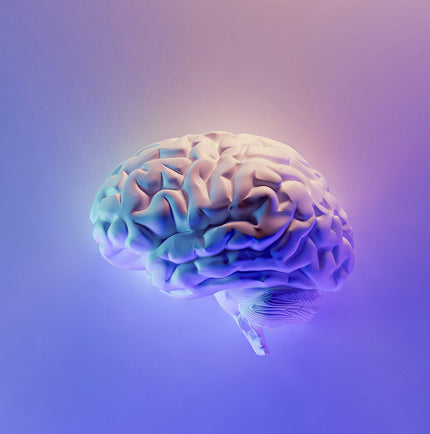
- Posted on

- Posted on
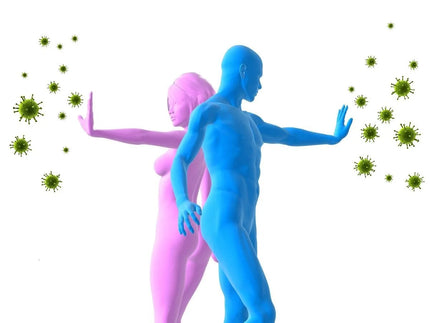
- Posted on

- Posted on

- Posted on
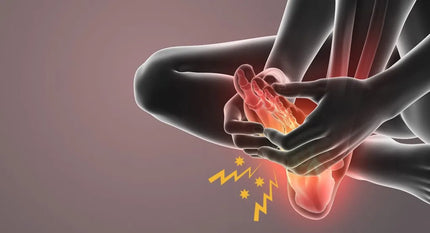
- Posted on

- Posted on

- Posted on

- Posted on
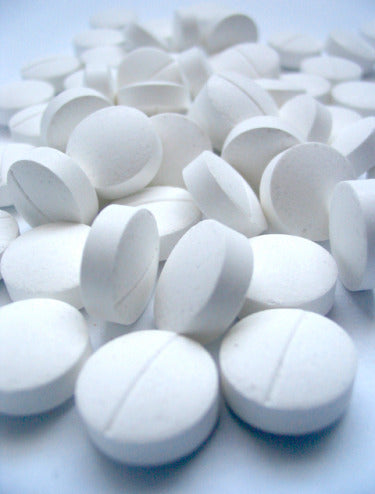
- Posted on

- Posted on

- Posted on

- Posted on

- Posted on

- Posted on

- Posted on

- Posted on

- Posted on

- Posted on

- Posted on
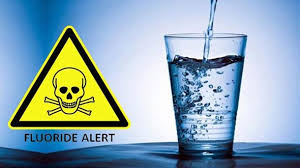
- Posted on

- Posted on
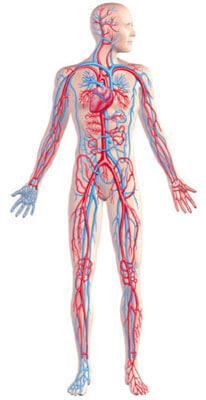
- Posted on

- Posted on

- Posted on
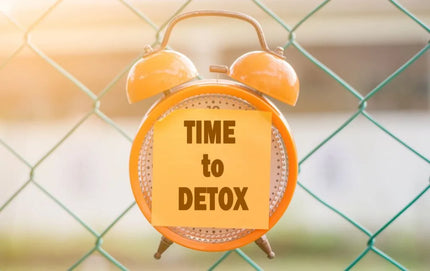
- Posted on
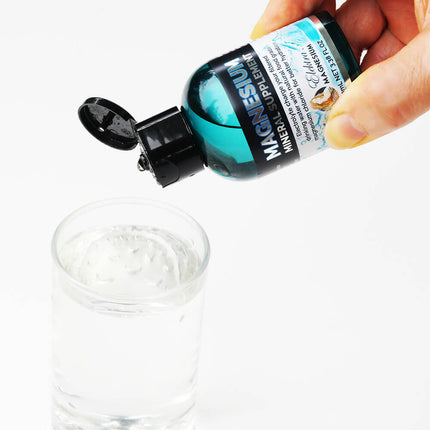
- Posted on

- Posted on

- Posted on

- Posted on

- Posted on

- Posted on

- Posted on

- Posted on

- Posted on

- Posted on

- Posted on
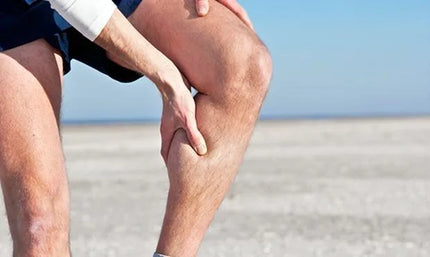
- Posted on

- Posted on

- Posted on

- Posted on
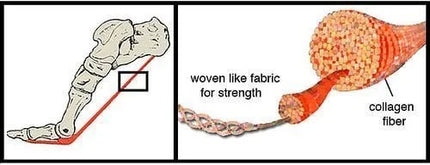
- Posted on

- Posted on
